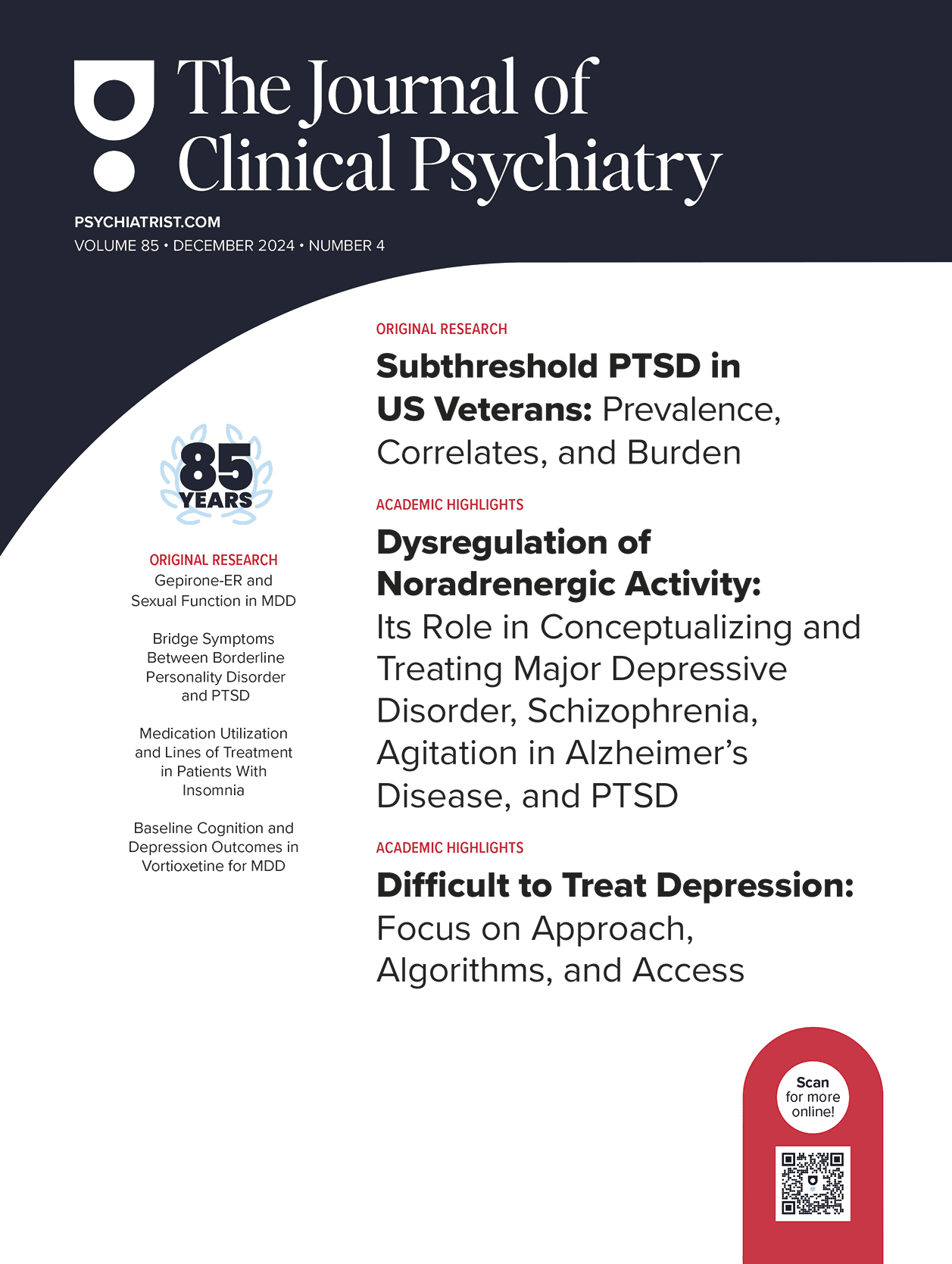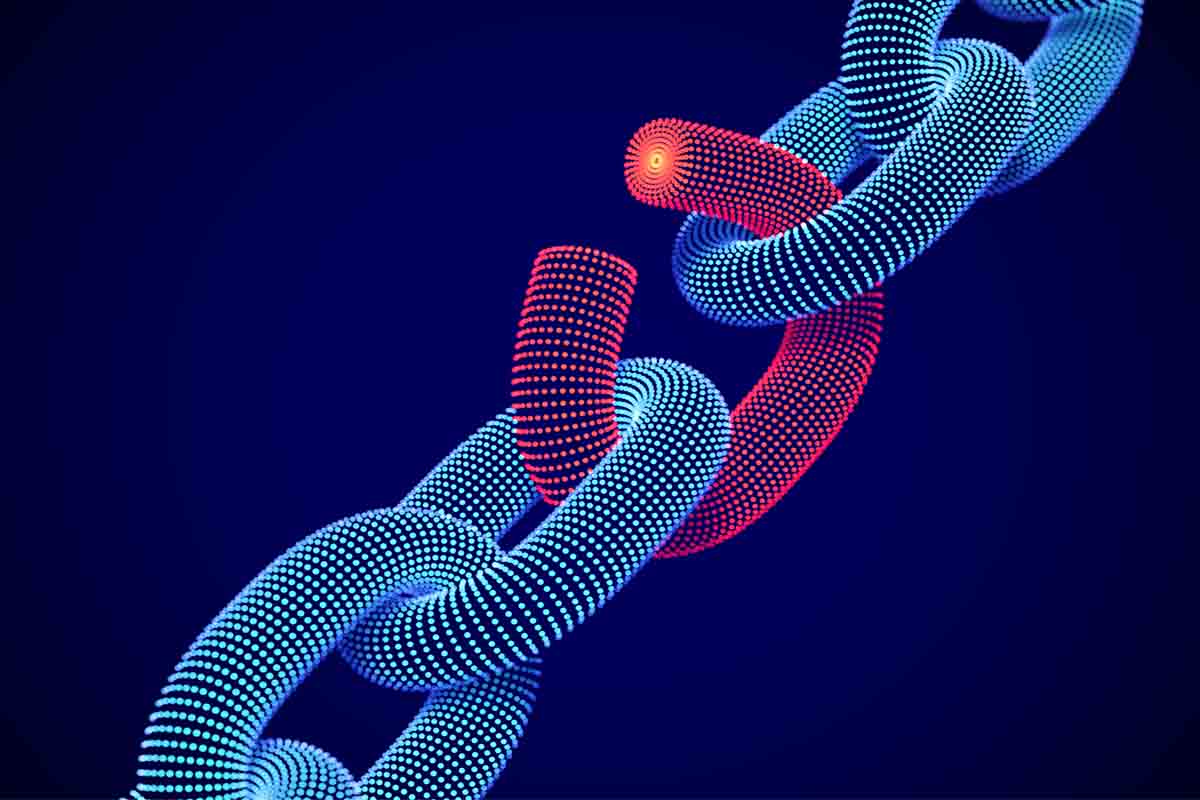Because this piece does not have an abstract, we have provided for your benefit the first 3 sentences of the full text.
To the Editor: With great interest, we read the article by Ionescu et al regarding the reduction of suicidal ideation after 6 doses of intravenous ketamine. Current data suggest beneficial effects of ketamine in patients with a depressive disorder, but as the evidence is still limited, we acclaim carefully performed and monitored studies. However, while reading the article, we noticed some limitations we would like to comment on.
See reply by Ionescu and Cusin and article by Ionescu et al
This work may not be copied, distributed, displayed, published, reproduced, transmitted, modified, posted, sold, licensed, or used for commercial purposes. By downloading this file, you are agreeing to the publisher’s Terms & Conditions.
Reduction in Suicidal Ideation Following Repeated Doses of Intravenous Ketamine?
To the Editor: With great interest, we read the article by Ionescu et al1 regarding the reduction of suicidal ideation after 6 doses of intravenous ketamine. Current data suggest beneficial effects of ketamine in patients with a depressive disorder, but as the evidence is still limited, we acclaim carefully performed and monitored studies. However, while reading the article, we noticed some limitations we would like to comment on.
First, it is important to note that this analysis concerns a small (N = 14), uncontrolled, and add-on open-label study. This makes it difficult to determine a possible causal relationship between the use of ketamine and reduction of suicidal ideation.
Second, the authors mention that patients were recruited "specifically for the presence of suicidal ideation," as only patients with a score ≥ 2 on the Suicide Item of the 28-item Hamilton Depression Rating Scale (HDRS28-SI) were included. But at baseline, most patients (n = 10) had an HDRS28-SI score of 2, indicating "only" a passive death wish. Also, the mean HDRS28-SI score at baseline of 2.1 indicates a relatively mild severity of suicidality. Patients thought to be at imminent risk of suicide were excluded from participation of this study, as described in another article about the same study.2
Concerning the acute treatment outcomes, the authors describe a significant reduction of suicidal ideation after 6 doses of ketamine. However, the data do not show a statistically significant decrease in suicidal ideation when controlling for change in the core symptoms of depression (6-item Hamilton Depression Rating Scale). Still, the authors conclude that the effect of ketamine on suicidal ideation may be independent of the general antidepressant effect. They suggest that effects on the reward circuitry and prefrontal cortex may explain these independent effects, but on the basis of these outcomes, this is still quite speculative.
Concerning the follow-up phase, information about changes in pharmacotherapy and psychotherapy, the course of suicidal ideation, and its relation to changes in HDRS28-SI scores could have assisted the reader in better understanding these associations over time, but this information is not provided. As only a minority of patients (2 out of 7, both of whom also showed depression remission) showed remission of suicidal ideation at follow-up, we would argue that the title of the article somewhat overstates its findings.
As Wilkinson and Sanacora3 have recently concluded, the evidence to date supporting the clinical use of ketamine as antisuicidal treatment is extremely preliminary, and on the basis of the article by Ionescu et al,1 conclusions concerning the effects of ketamine on suicidal ideation should be drawn with caution.
References
1. Ionescu DF, Swee MB, Pavone KJ, et al. Rapid and sustained reductions in current suicidal ideation following repeated doses of intravenous ketamine: secondary analysis of an open-label study. J Clin Psychiatry. 2016;77(6):e719-e725. PubMed doi:10.4088/JCP.15m10056
2. Cusin C, Ionescu DF, Pavone KJ, et al. Ketamine augmentation for outpatients with treatment-resistant depression: preliminary evidence for two-step intravenous dose escalation. Aust N Z J Psychiatry. 2016;0004867416631828. PubMed doi:10.1177/0004867416631828
3. Wilkinson ST, Sanacora G. Ketamine: a potential rapid-acting antisuicidal agent? Depress Anxiety. 2016;33(8):711-717. PubMed doi:10.1002/da.22498
aUniversity of Groningen, University Medical Center Groningen, Department of Psychiatry, Groningen, The Netherlands
bUniversity of Groningen, Research School of Behavioural and Cognitive Neurosciences (BCN), Groningen, The Netherlands
Potential conflicts of interest: None.
Funding/support: None.
J Clin Psychiatry 2017;78(1):e71
https://doi.org/10.4088/JCP.16lr11210
© Copyright 2017 Physicians Postgraduate Press, Inc.
This PDF is free for all visitors!
Save
Cite




